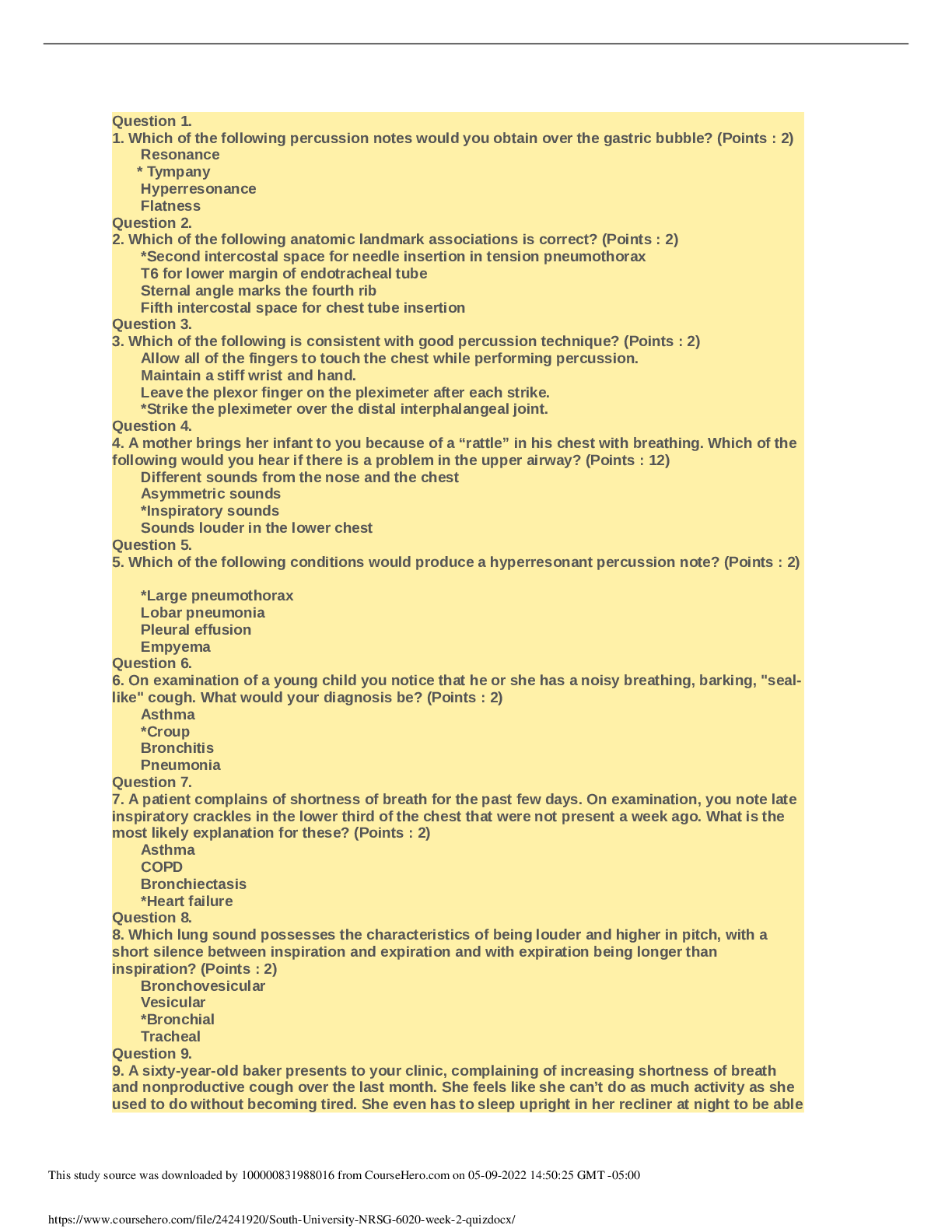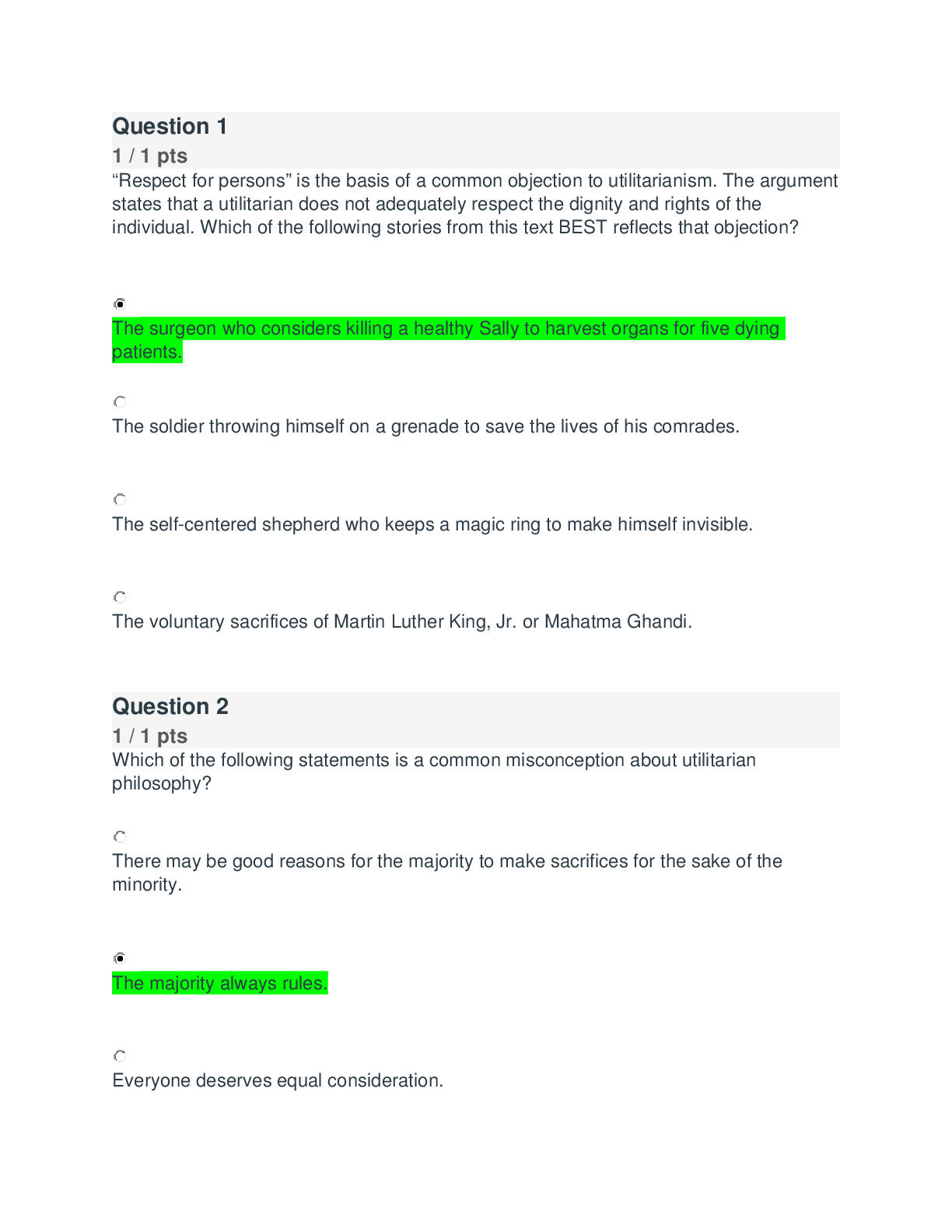Sociology > QUESTIONS & ANSWERS > SOCS 350N Week 2 Quiz One: Question / Answers - 100% Correct Answers (All)
SOCS 350N Week 2 Quiz One: Question / Answers - 100% Correct Answers
Document Content and Description Below
SOCS 350N Week 2 Quiz One: Question / Answers (TCOs 1 & 2) The existence of a wide variety of cultures and subcultures represented within a society is . Student Answer: marginalizati... on culture cultural diversity culturally different cultural diffusion Instructor Week 1 Flash Cards Explanation: Points Received: 4 of 4 Comments: Question 2. Question : (TCOs 1 & 2) A category of people distinguished from the dominant society on the basis of distinctive and identifiable cultural characteristics is . Student Answer: White ethnics race ethnic group culture subculture Instructor Week 1 Lecture and Flash Cards Explanation: Points Received: 0 of 4 Comments: Question 3. Question : (TCOs 1 & 2) Caucasians with origins other than Northern or * Times are displayed in (GMT- 0) Mountain Time (US & Canada) Week 5 : Roots and Results of Conflict - Quiz Question 1.1. (TCOs 4 & 7) Collaboration is defined in lecture as: (Points : 10) the delegation of a subordinate by a superior. the delegation of a superior by a subordinate. conflict resolution. two or more people engag n the same task. two or more people cooperatively interact in ways to accomplish a goal.* Question 2.2. (TCOs 4 & 7) This trigger includes distinctive accents, speech patterns, inflections, and slang: (Points : 10) appearance. voice.* attitude. behavior. manners. Question 3.3. (TCO 8) The relative ranking of one's position in society and its honor and respect refers to . (Points : 10) power economics socioeconomic status autonomy prestige* Question 4.4. (TCOs 4 & 7) Lecture defines a “trigger” as: (Points : 10) a horse ridden by Roy Rogers. something that can generate ethnocentric responses or defensive reactions.* a reflexive reaction on the part of someone. something that makes you recall a long past memory. something a person does to incite a riot. Question 5.5. (TCOs 4 & 7) An example of behavior as a “trigger” would be: (Points : 10) race. accent.* posture. etiquette and manners. ethics. Question 6.6. (TCO 8) Which o following is an example of an achieved status? (Points : 10) U.S. Congressional Representative U.S. Senator This study source was downloaded by 100000879074711 from CourseHero.com on 01-24-2024 13:14:35 GMT -06:00 Speaker of the House Secretary of State President of the United States* Question 7.7. (TCO 8) Which of the following is an example of an achieved status? (Points : 10) Race Sex Kinship Caste Occupation* Question 1.1. (TCO 4, 7 & 8) Name three categories of ethical theories introduced in the book. Describe their main points or basic philosophy. Identify which theory would be best to deal with issues of cultural diversity and ain why. (Points : 30) the three ethical theories are:Deontology (Faith),Teleology (Hope),Caring (Charity) Deontology (Faith):Probably the most well-known deontological theory is Emmanuel Kant’s categorical imperative, which dictates that one has a duty to “act only on that maxim by which you can at the same time will that it should become a universal law” (Kant 1785). We all know the popular paraphrase of Kant’s categorical imperative, “Do unto others as you would have them do unto you.” Deontological theories are based on duties, rules, and obligations that lie outside the person. Religious practice tends to rest on a deontological approach to ethics. For example, we can think of the Ten Commandments as a series of duties. Brady uses the term faith to capture this characteristic. Teleology (Hope):The teleological approach holds that decisions are right or good if they produce a desired goodness and bad if th roduce some undesirable state (badness or pain). So teleological approaches are ac based, connected with implementation, while the deontological approaches concern the process (Hopkins, 1997). Utilitarianism, the greatest good for the greatest number, illustrates such an act based, results-oriented approach. Caring (Charity):These are the ries that come, not from a reasoned sense of duty nor from desired outcomes, but, because they are psychological and emotional in nature, “from an interpersonal connectedness”—an ethic of charity, as Brady suggests. On the universal side of this theory, examples drawn from r ous situations and philanthropy come to mind readily: belief systems that value a love for humanity, for example, and a love for individuals because they are a part of that humanity. On the particular side, someone who joins the Peace Corps to do volunteer work in a specific setting or wh es community volunteer work in a specific effort might offer us examples of particularized caring ethics. The theory that best deals with issues of cultural diversity is the Caring Theory because the diversity claim offered by ethics of caring might be stated as follows: we value diversity in our organization because we value every individual and his/her dignity and right to contribute and be a part of our organization. This particularist approach in a business setting seems more likely than does its universal aspect: we value individual, diverse members of our organizational community because we have come to respect, care for and perhaps love them. This study source was downloaded by 100000879074711 from CourseHero.com on 01-24-2024 13:14:35 GMT -06:00 [Show More]
Last updated: 3 months ago
Preview 1 out of 3 pages

Reviews( 0 )
Document information
Connected school, study & course
About the document
Uploaded On
Jan 24, 2024
Number of pages
3
Written in
Additional information
This document has been written for:
Uploaded
Jan 24, 2024
Downloads
0
Views
23
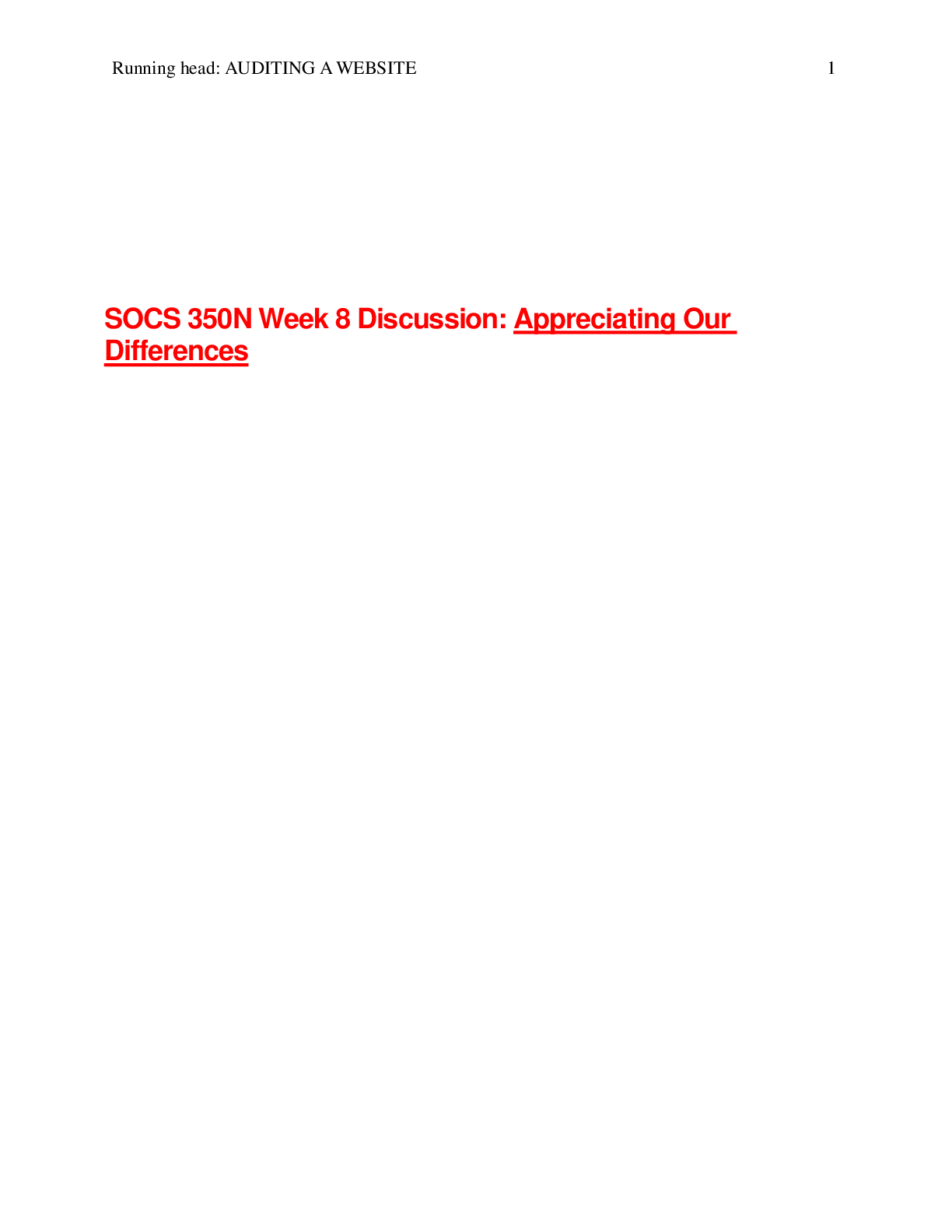



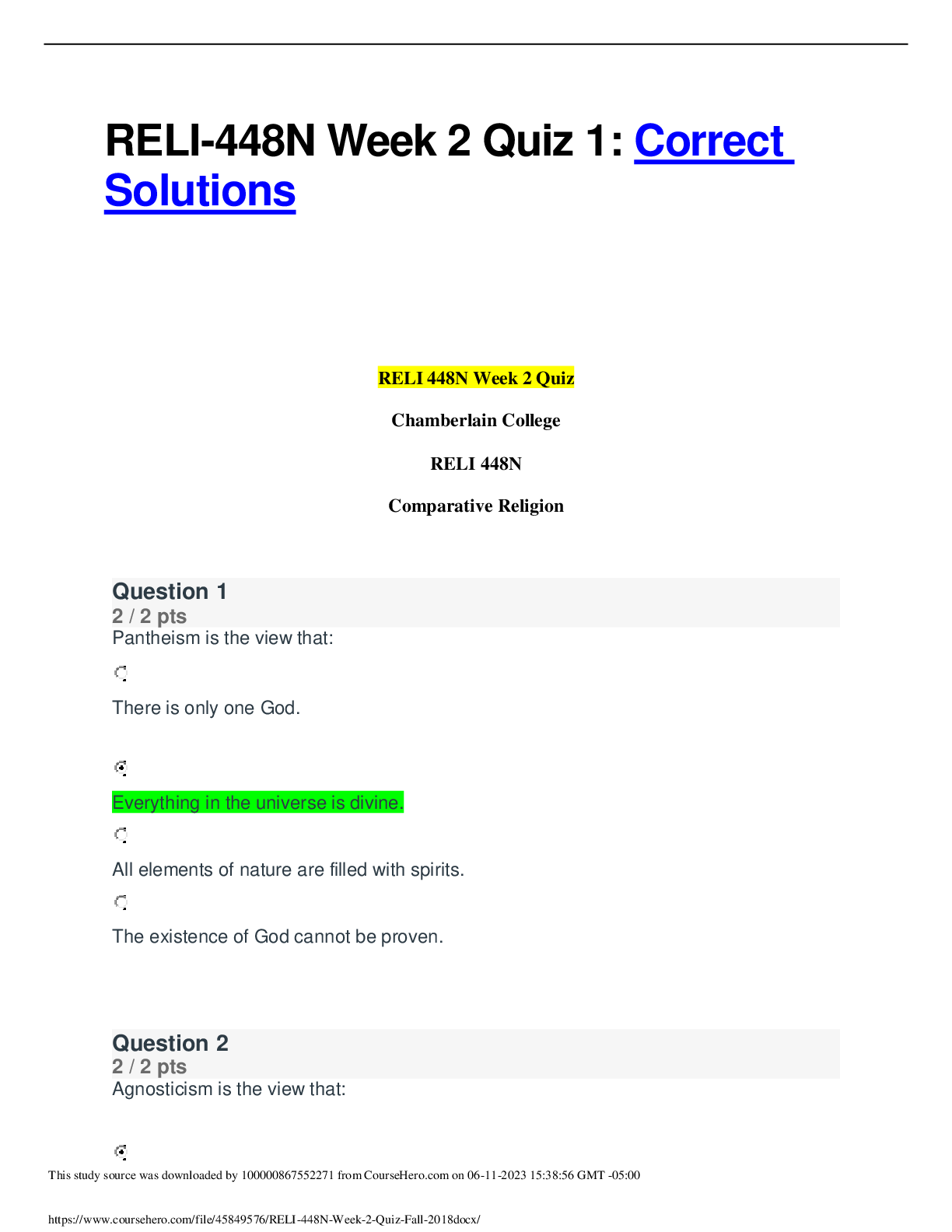
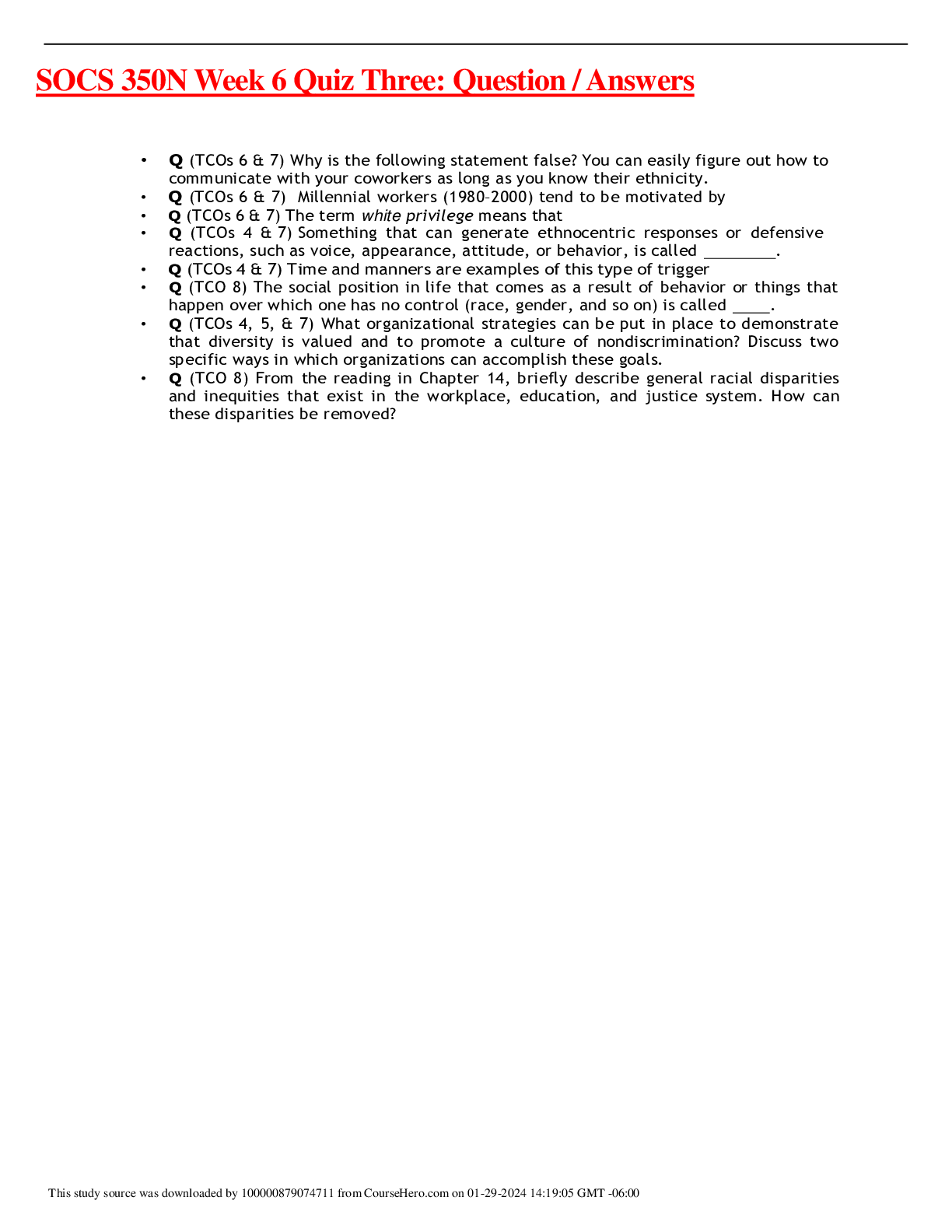


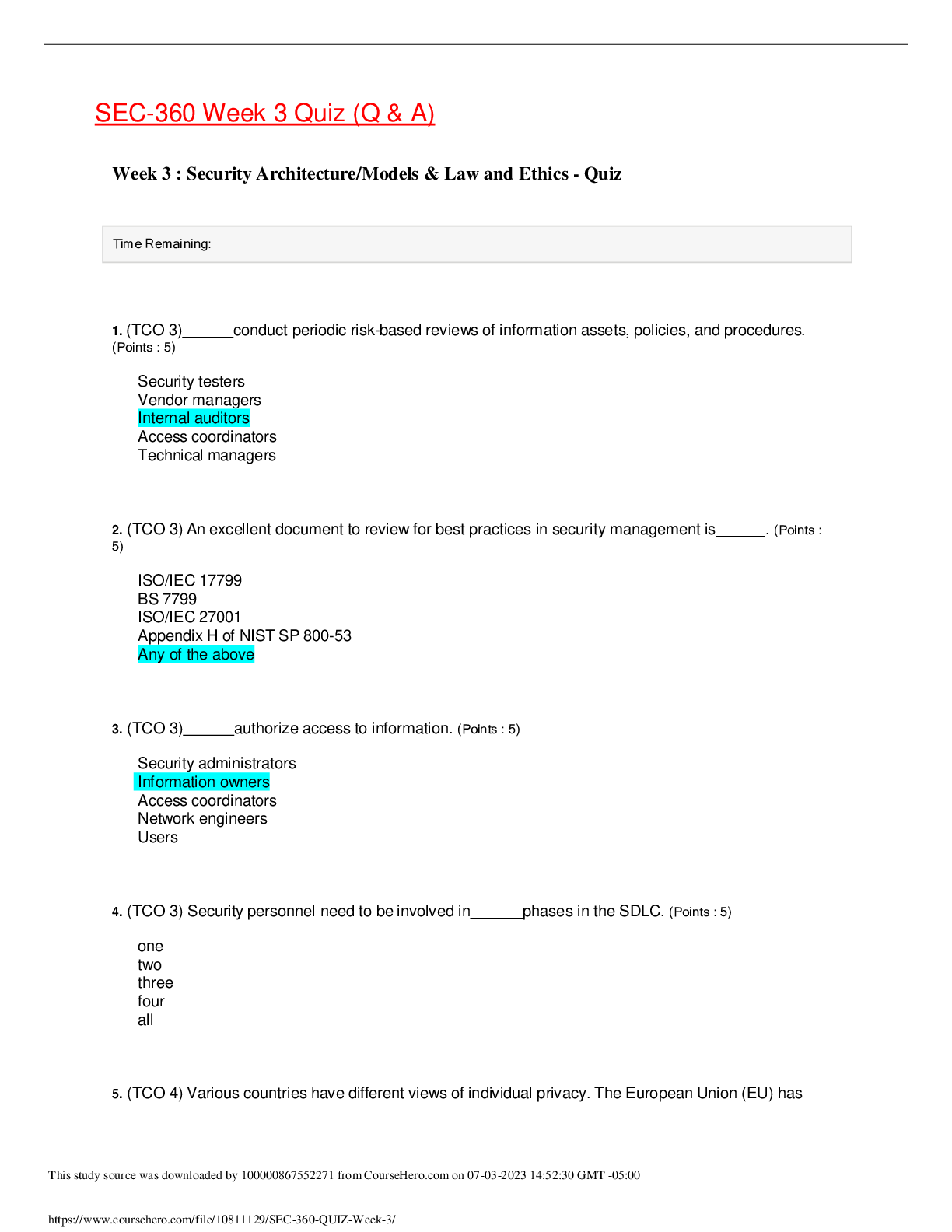
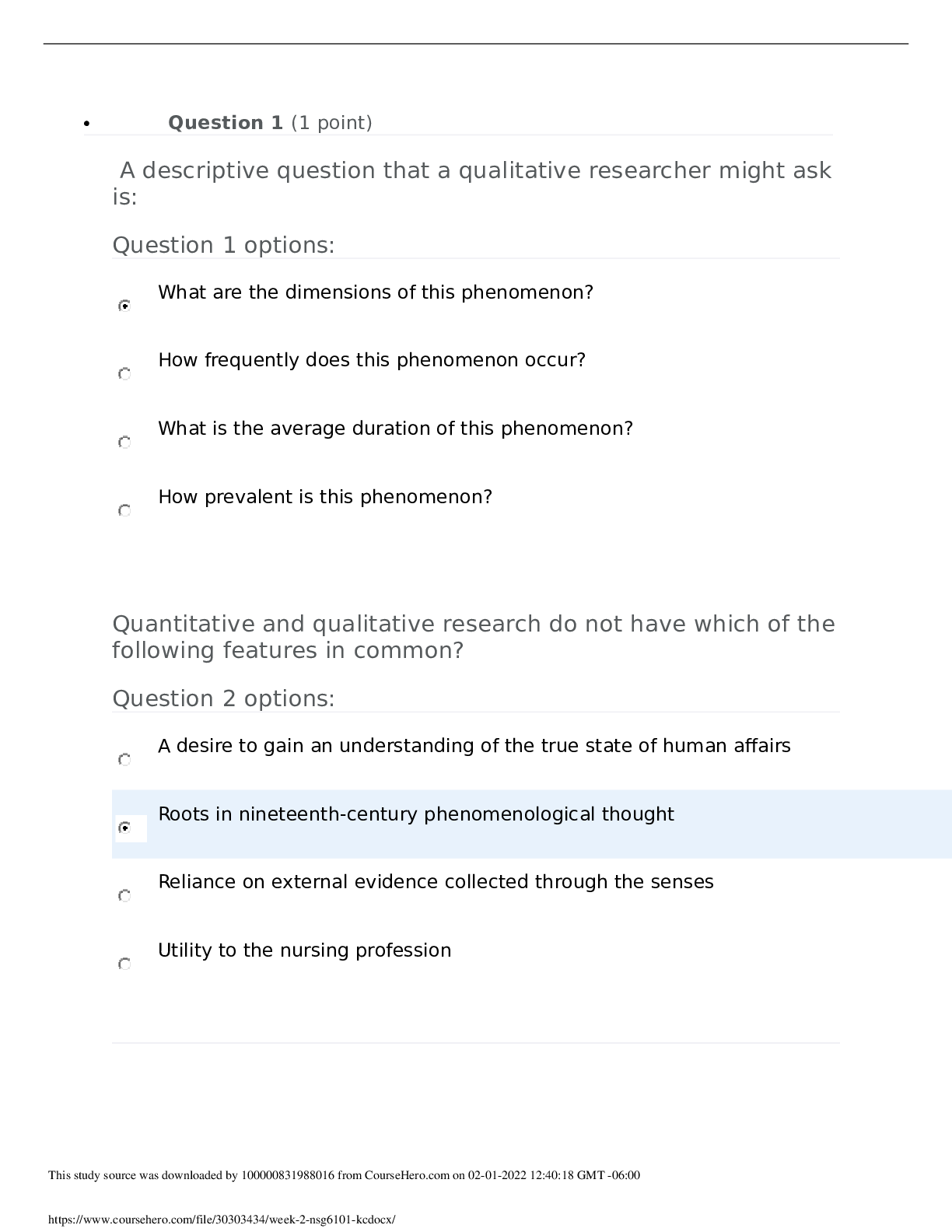
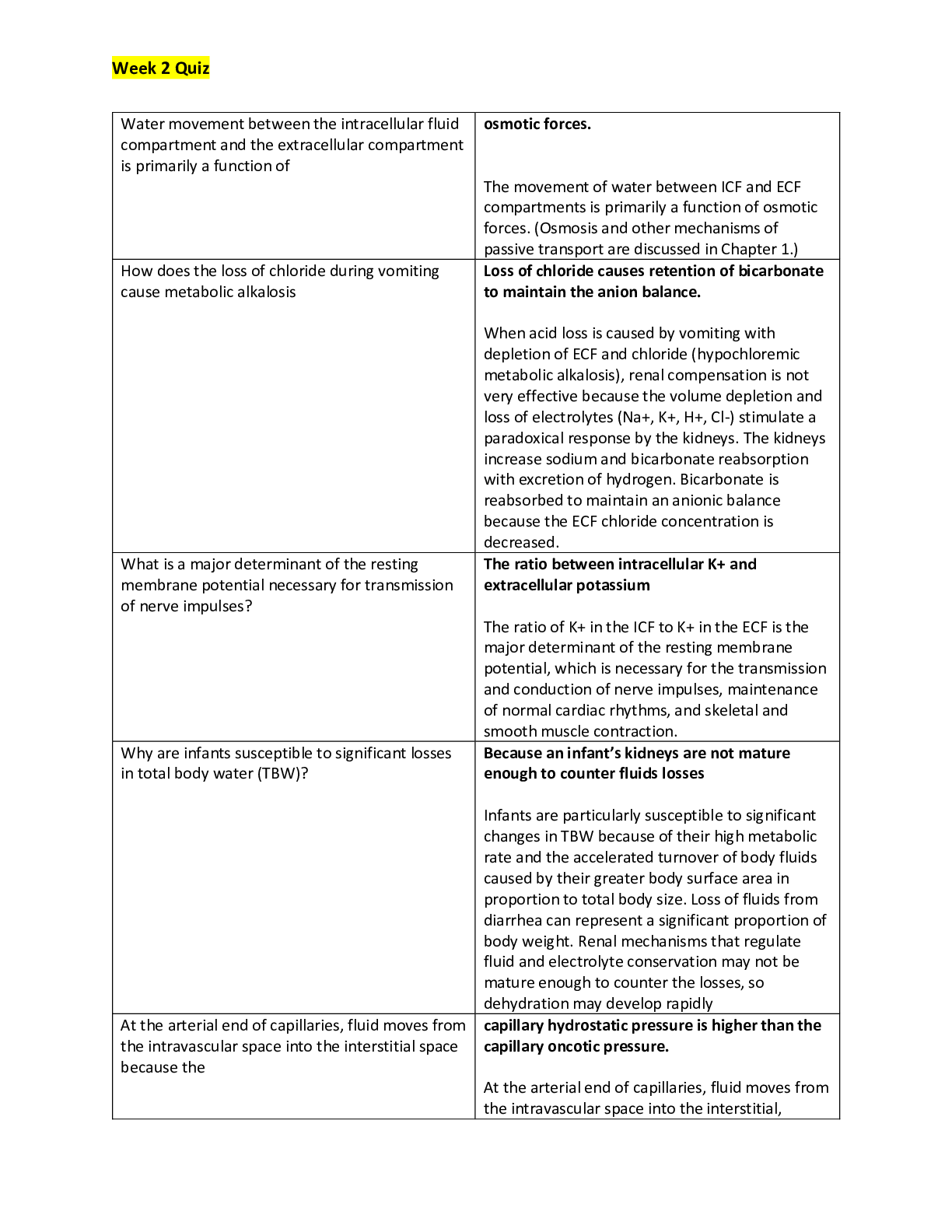
.png)

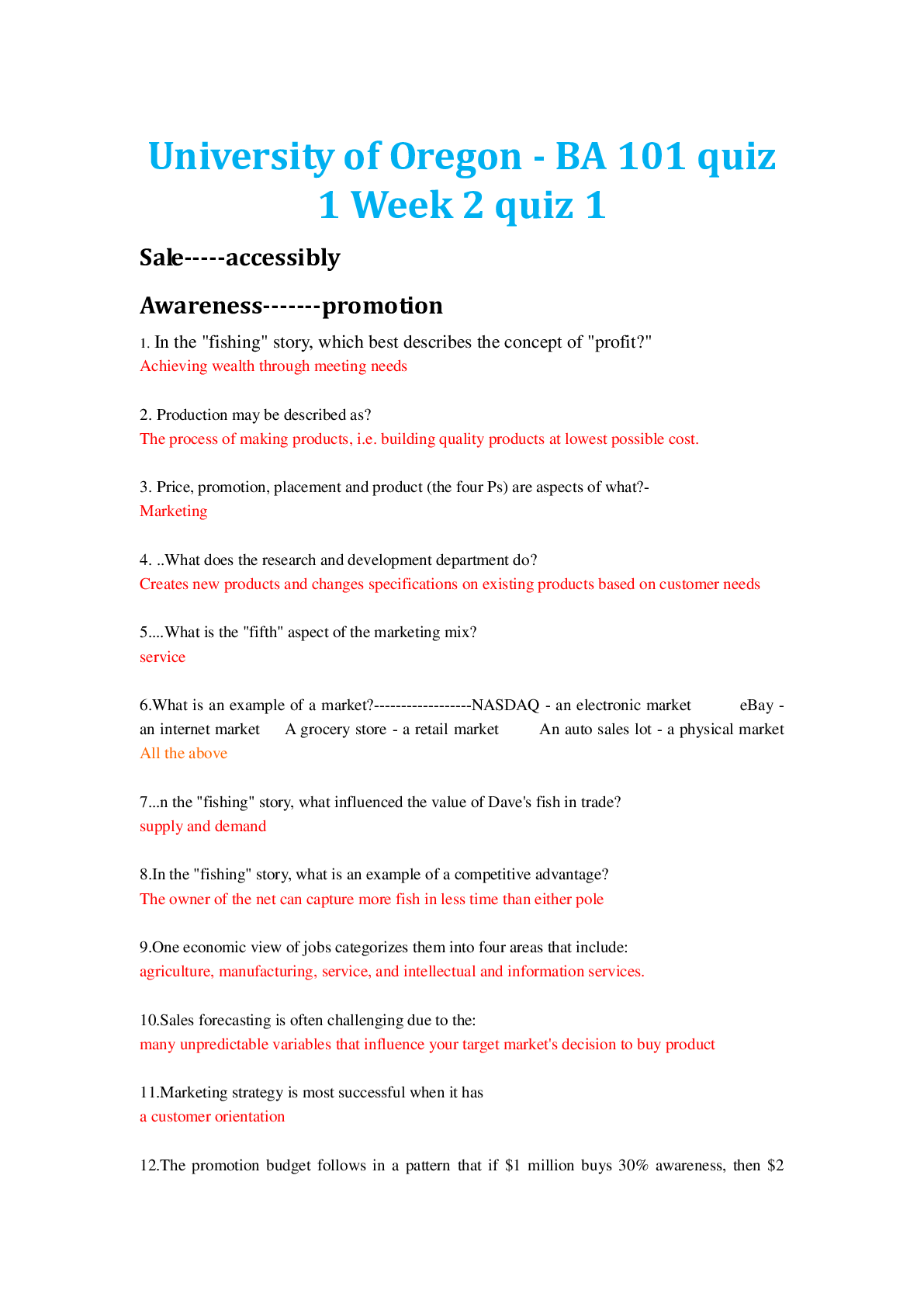

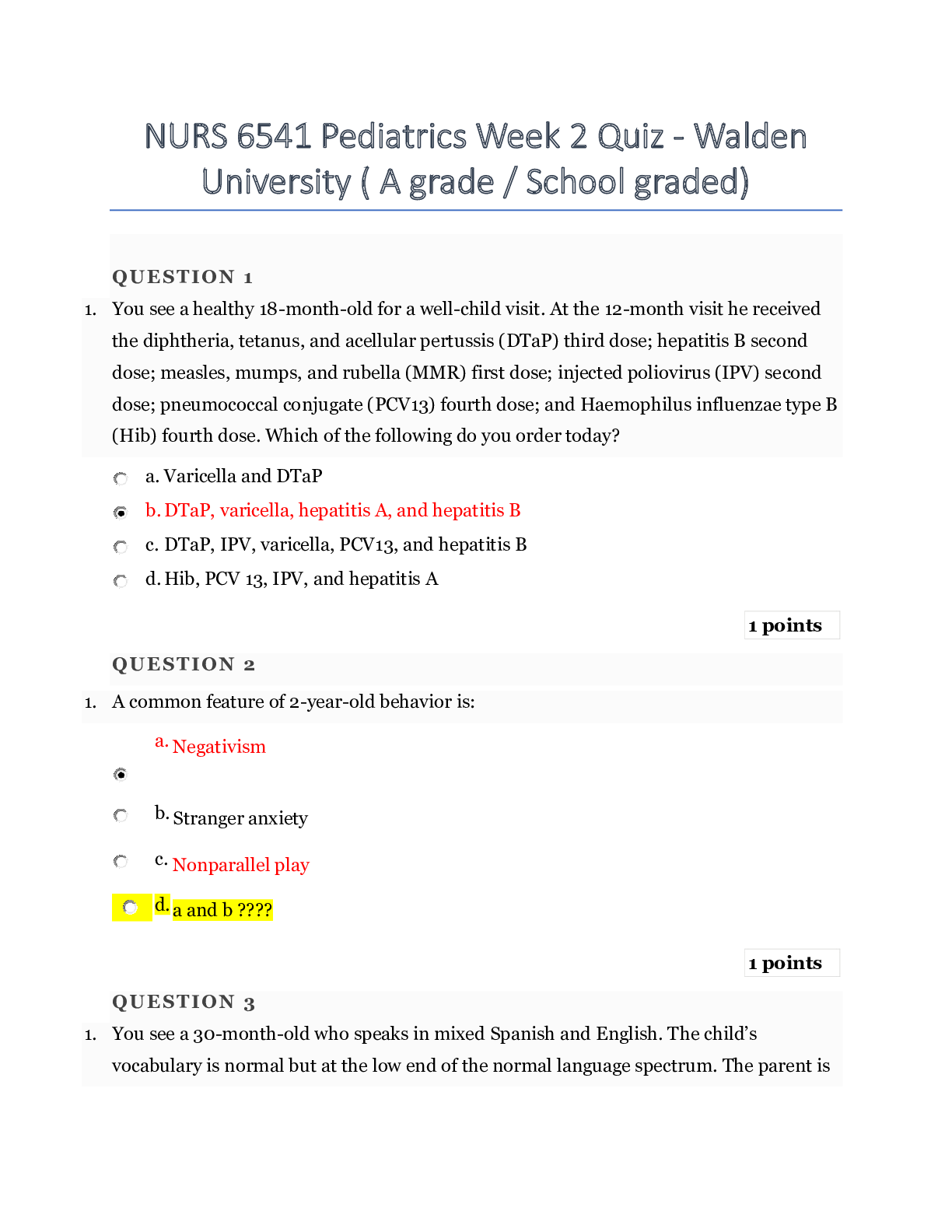
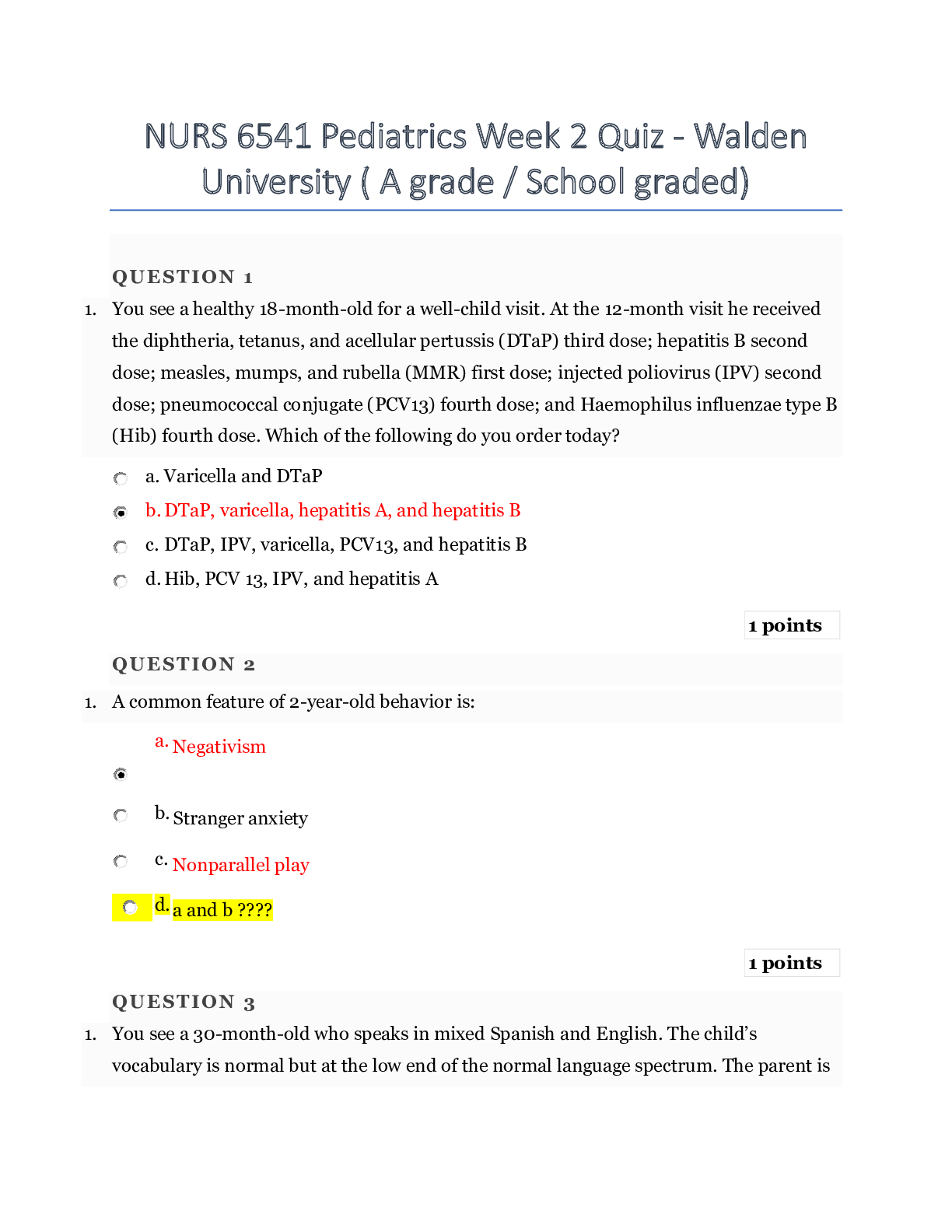

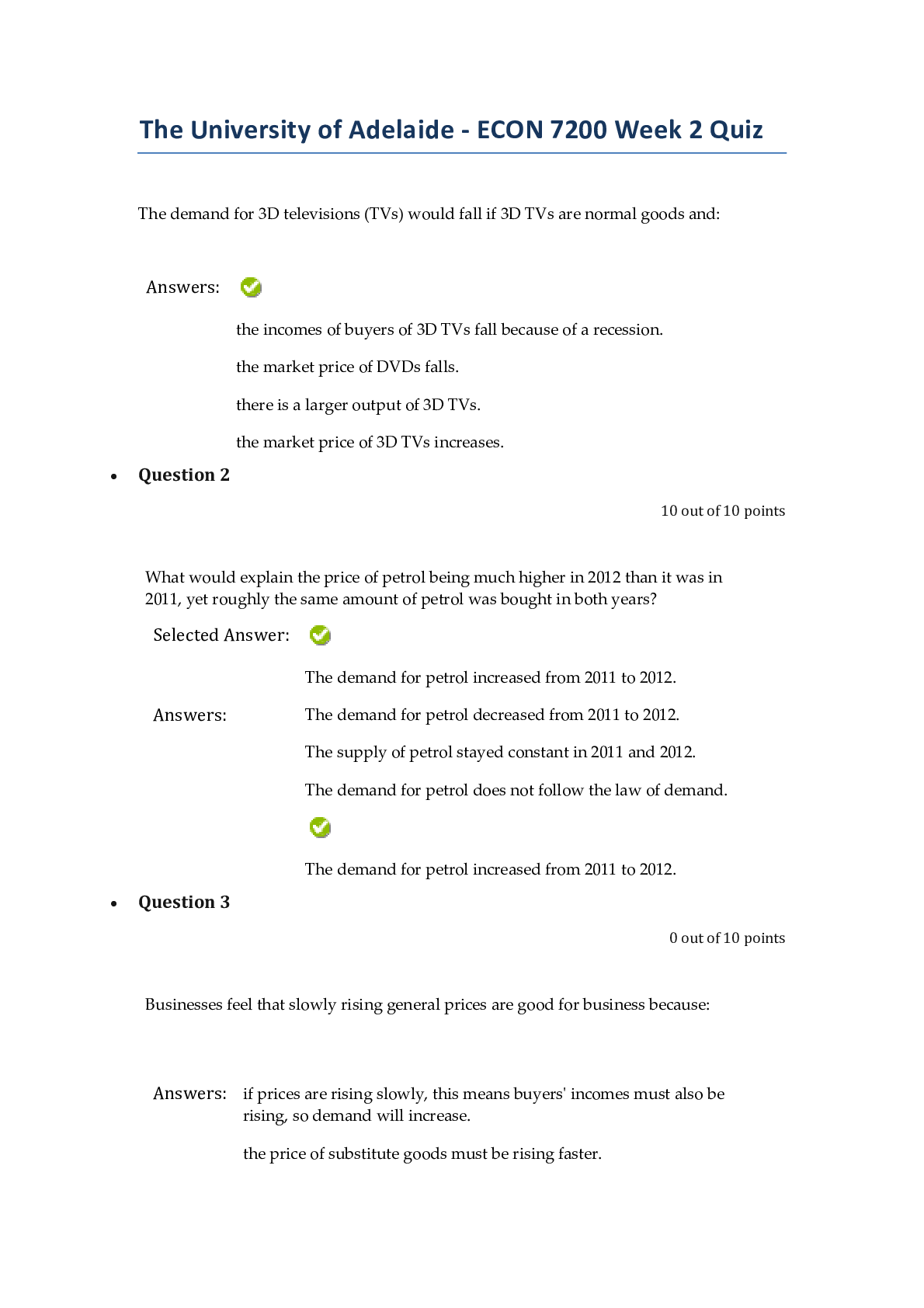


.png)



